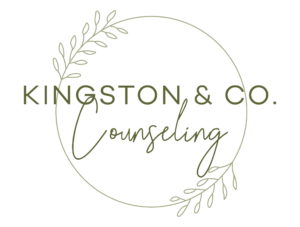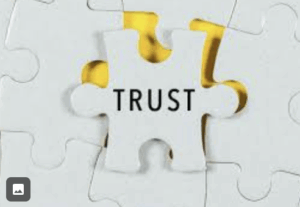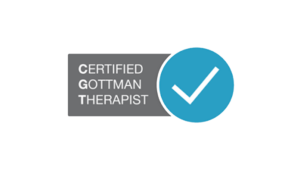Post-Traumatic Stress Disorder (PTSD) and Complex Post-Traumatic Stress Disorder (CPTSD) are both conditions that develop after experiencing trauma. However, they are not the same. While PTSD is often linked to a single traumatic event, CPTSD results from prolonged or repeated trauma, such as childhood abuse, neglect, or long-term domestic violence.
Understanding the differences between PTSD and CPTSD can help individuals recognize their symptoms and seek the right support. In this post, we’ll break down how these conditions differ, their symptoms, and how therapy can help with healing.
1. What Is PTSD?
Post-Traumatic Stress Disorder (PTSD) develops after a person experiences or witnesses a single traumatic event, such as:
🔹 Car accidents
🔹 Natural disasters
🔹 Physical or sexual assault
🔹 Military combat
🔹 Sudden loss of a loved one
Symptoms of PTSD:
PTSD symptoms are generally grouped into four categories:
1. Re-Experiencing Trauma
✔️ Flashbacks (feeling like the trauma is happening again)
✔️ Nightmares related to the event
✔️ Distressing thoughts or images
2. Avoidance
✔️ Avoiding places, people, or conversations that remind you of the trauma
✔️ Pushing away thoughts or memories of the event
3. Hyperarousal (Fight-or-Flight Mode Always “On”)
✔️ Feeling constantly on edge, jumpy, or easily startled
✔️ Trouble sleeping or concentrating
✔️ Outbursts of anger or irritability
4. Negative Changes in Thoughts & Mood
✔️ Persistent guilt, shame, or self-blame
✔️ Feeling numb, disconnected, or detached
✔️ Difficulty experiencing positive emotions
🔗 If PTSD symptoms are affecting your daily life, our trauma-informed therapy can help with healing and recovery.
2. What Is CPTSD?
Complex Post-Traumatic Stress Disorder (CPTSD) occurs after prolonged, repeated trauma, especially in situations where a person feels trapped or powerless. This type of trauma often happens in:
🔹 Childhood abuse or neglect
🔹 Domestic violence
🔹 Human trafficking or prolonged captivity
🔹 Emotional or psychological abuse
🔹 Long-term exposure to war or conflict
While CPTSD includes all PTSD symptoms, it also has additional effects on self-identity, emotions, and relationships.
3. Key Differences Between PTSD and CPTSD
| Feature | PTSD | CPTSD |
|---|---|---|
| Type of Trauma | Single traumatic event | Repeated, prolonged trauma |
| Symptoms | Re-experiencing, avoidance, hyperarousal, negative mood changes | PTSD symptoms + difficulties with self-identity, emotional regulation, and relationships |
| Impact on Self-Perception | May feel guilt or shame about trauma | Deep-rooted feelings of worthlessness, self-blame, or “brokenness” |
| Emotional Regulation | Increased anxiety, anger, or numbness | Extreme emotional highs and lows, difficulty managing emotions |
| Relationships | May struggle with trust due to trauma | Fear of intimacy, chronic feelings of isolation, or unhealthy relationship patterns |
4. Additional Symptoms of CPTSD
CPTSD goes beyond PTSD by affecting a person’s sense of self and relationships with others.
⚡ 1. Emotional Dysregulation
✔️ Extreme mood swings (from numbness to explosive anger or sadness)
✔️ Difficulty calming down after stress
✔️ Feeling “too much” or “too little” emotionally
💔 2. Negative Self-Perception
✔️ Persistent guilt, shame, or feeling “unworthy”
✔️ Feeling fundamentally broken or defective
✔️ Self-hatred or an intense inner critic
🚪 3. Relationship Difficulties
✔️ Trouble trusting others or feeling safe in relationships
✔️ Fear of abandonment or rejection
✔️ Repeatedly getting into toxic or abusive relationships
🎭 4. Dissociation (Feeling Disconnected from Reality)
✔️ Feeling detached from your body or surroundings
✔️ “Spacing out” or losing chunks of time
✔️ Forgetting important details about your trauma
🔗 If you relate to these symptoms, trauma informed therapy can help. Learn more about our therapy services for healing from complex trauma.
5. Healing from PTSD and CPTSD: What Helps?
Both PTSD and CPTSD require compassionate, trauma-informed care. Healing is possible, and different therapies can help process trauma, rebuild self-worth, and improve emotional regulation.
🚀 Effective Therapy Approaches Include But Are Not Limited to:
✔️ EMDR (Eye Movement Desensitization and Reprocessing): Helps process traumatic memories so they no longer feel overwhelming.
✔️ Trauma-Focused Cognitive Behavioral Therapy (TF-CBT): Rewires negative thought patterns linked to trauma.
✔️ Somatic Therapy: Uses body-based techniques to release stored trauma.
✔️ Internal Family Systems (IFS) Therapy: Helps individuals heal wounded inner parts of themselves caused by trauma.
🧹 Self-Care Tips for Trauma Recovery:
✔️ Practice grounding techniques to stay present in the moment (breathing exercises, holding a cold object, sensory focus).
✔️ Journal about your emotions to track triggers and emotional patterns.
✔️ Create a safe space—whether it’s through therapy, support groups, or trusted relationships.
✔️ Engage in self-compassion—remind yourself that your trauma does not define you.
Final Thoughts: You Are Not Alone
Both PTSD and CPTSD are valid, real conditions that deserve compassionate care and treatment. If you’re struggling with trauma, know that you don’t have to go through it alone. Healing takes time, but with the right support, it is possible to regain a sense of safety, self-worth, and emotional balance.
At Kingston & Co Counseling, we specialize in trauma recovery, providing a safe and supportive space for healing.
👉 Ready to take the first step? Contact us today to schedule a session and start your journey toward healing.
✨ You are not broken. You are healing. And you deserve support. ✨







